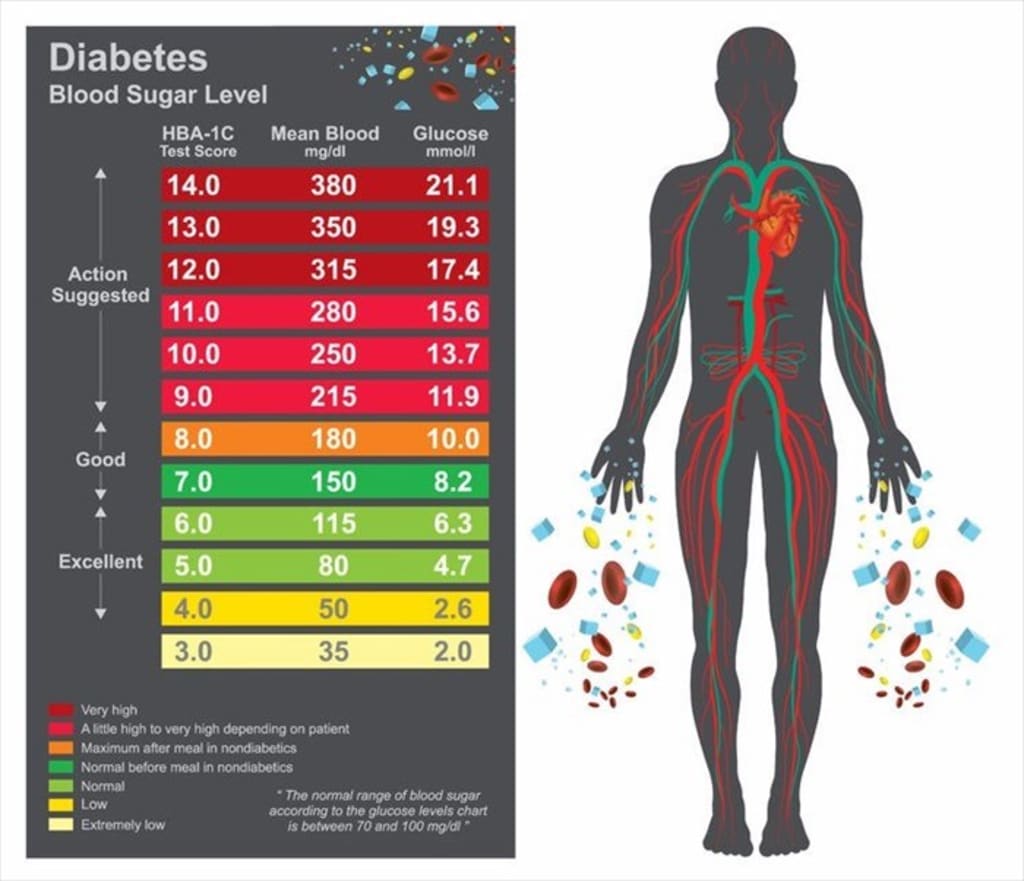Blood Sugar
Smart Blood Sugar

Diabetes is a chronic medical condition that occurs when the body is unable to regulate blood sugar levels properly. There are two main types of diabetes: type 1 diabetes and type 2 diabetes.
Type 1 diabetes: This type of diabetes is an autoimmune disorder in which the immune system mistakenly attacks and destroys the insulin-producing cells in the pancreas. As a result, the pancreas produces little to no insulin, the hormone responsible for regulating blood sugar levels. Type 1 diabetes usually develops during childhood or adolescence, although it can occur at any age. People with type 1 diabetes require insulin injections or the use of an insulin pump to manage their blood sugar levels.
Type 2 diabetes: This form of diabetes is more common and typically develops in adulthood, although it is increasingly seen in children and adolescents due to rising obesity rates. In type 2 diabetes, the body becomes resistant to the effects of insulin, or the pancreas does not produce enough insulin to meet the body's needs. Lifestyle factors, such as being overweight or inactive, can contribute to the development of type 2 diabetes. Treatment for type 2 diabetes may include lifestyle modifications, such as a healthy diet, regular exercise, and weight loss, as well as oral medications or insulin therapy if necessary.
In both types of diabetes, the inability to regulate blood sugar levels can lead to high blood sugar levels (hyperglycemia), which, if left uncontrolled, can cause various complications over time. These complications may affect the eyes, kidneys, nerves, and cardiovascular system. It is crucial for individuals with diabetes to manage their blood sugar levels through regular monitoring, medication (if required), a balanced diet, physical activity, and lifestyle changes to minimize the risk of complications and maintain overall health.
It's important to note that there are other forms of diabetes, such as gestational diabetes, which occurs during pregnancy, and less common types caused by genetic mutations or other medical conditions. Consulting with a healthcare professional is essential for proper diagnosis, treatment, and management of diabetes.
Blood sugar, also known as blood glucose, refers to the concentration of glucose present in the bloodstream. Glucose is a sugar that serves as the primary source of energy for the body's cells. It comes from the food we eat, particularly carbohydrates.
Maintaining stable blood sugar levels is crucial for overall health. The hormone insulin, produced by the pancreas, plays a key role in regulating blood sugar levels. When we consume carbohydrates, the body breaks them down into glucose, causing blood sugar levels to rise. In response, the pancreas releases insulin, which helps transport glucose from the bloodstream into the cells, where it can be used for energy.
If blood sugar levels become too high, a condition called hyperglycemia occurs. This can happen in people with diabetes or in individuals without diabetes due to certain factors such as a high-carbohydrate meal. Symptoms of hyperglycemia may include increased thirst, frequent urination, fatigue, blurred vision, and slow wound healing.
On the other hand, if blood sugar levels drop too low, it leads to hypoglycemia. This condition can be dangerous and is often associated with diabetes medication, excessive insulin use, or prolonged fasting. Symptoms of hypoglycemia may include shakiness, dizziness, confusion, sweating, and weakness.
To maintain healthy blood sugar levels, it is important to eat a balanced diet that includes a variety of foods, including complex carbohydrates, proteins, and healthy fats. Regular physical activity, weight management, and stress reduction can also contribute to stable blood sugar levels.
People with diabetes often monitor their blood sugar levels regularly using a glucose meter. They may also use insulin or other medications to manage their blood sugar levels effectively.
It's important to note that while I strive to provide accurate and up-to-date information, it's always best to consult with a healthcare professional for personalized advice or if you have specific concerns about your blood sugar levels.
"Smart blood sugar" is a term commonly associated with a dietary approach to managing blood sugar levels. It refers to a program created by Dr. Marlene Merritt, a licensed doctor of Oriental medicine. The Smart Blood Sugar program focuses on controlling carbohydrate intake, managing insulin levels, and promoting overall blood sugar stability.
Care to know more???... click the link... https://www.digistore24.com/redir/307885/Shade79/
About the Creator
MOHD AQSHA BIN SAUBIN
#Well done better than well said






Comments
There are no comments for this story
Be the first to respond and start the conversation.